How to start good conversations with kids
Good conversations build great relationships. And since parenting is really all about relationship building, starting good conversations with kids is essential. Good conversations help build young children’s thinking and language skills and they can also give you a precious insight into what’s going on in your teenager’s mind.
Sometimes, there are issues that we simply have to talk to our kids about (eg for safety reasons), even if we feel uncomfortable. When it comes to these tricky topics, getting started is often the hardest part.
So, how do you go about starting a good conversation with your child? Firstly, you need to get the timing right. It’s much easier to start a conversation when the other person is mentally available and isn’t glued to a device. So pick your moment – at the dinner table, out for a walk, in the car or while doing something together are all great opportunities for conversations.
Secondly, you’ll need to engage their interest (try talking to me about golf at any time of the day and I’m likely to switch off!). And you’ll need to listen really well. That means being non-judgemental and curious and exploring together with your child the issue at hand.
If all that sounds like hard work at the end of the day when you’re already tired, here’s a list of useful resources to help you along the way.
*This post contains affiliate links
How to have Incredible Conversations
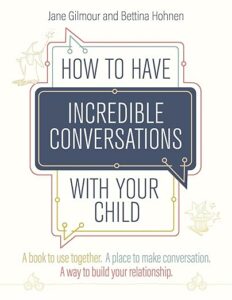
You can use this book together with your child too, as it is full of imaginative ideas for intriguing conversations which have been specifically designed to build parent-child relationships and foster good communication. The conversation topics have been carefully chosen to help children learn to talk about emotions safely and express opinions thoughtfully, and to help parents learn to listen and connect. And it is full of useful prompts to guide you away from monosyllabic cul-de-sacs.
Ask a good question
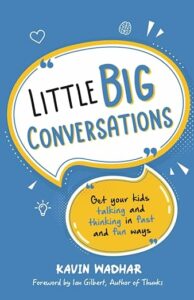
You might also want to take a look at the Little BIG Conversations book by Kavin Wadhar (I contributed a few words of wisdom to this book too 🙂 ).
Use stories as a launchpad
Reading books together with children is a great way to start conversations. You can talk about the characters, their thoughts and feelings and the situations they find themselves in. By talking about the characters in the book you can open up a conversation about what your child might do in that situation or a time when they might have felt that way. (Watch this quick video on Using ‘Story Time’ to understand your child better for a demonstration).
Choose the book wisely and you can easily start conversations on the topics that are most relevant to your child/family. Take a look at these booklists for ideas:
- Books for helping children manage friendship problems
- Children’s books on lying
- Children’s books that celebrate diversity
- Books to help children cope with change
- Children’s books about multiculturalism in Britain
- Children’s books about shyness
Prompt cards
If you don’t want to carry a book with you, how about some prompt cards? You can write them yourself – or get the whole family involved in writing them. You can use prompt cards as a game (eg Cards Against Humanity Family Edition), as a conversation starter at mealtimes or just tuck them in your pocket for bored moments out and about. If you don’t want to make them, Happy Home Learning sell little tins of prompt cards for 2 to 10-year-olds that are all graded by age and are perfect for supporting younger children’s learning.
Getting a teenager to talk to you
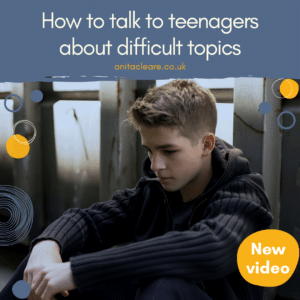
The best TV programmes to start conversations with teens are those with strong plot lines around friendship, family, dating and social issues. Think: Friends, Modern Family, soap operas (eg Hollyoaks), MTV Catfish, Married At First Sight, I’m A Celebrity – whatever your teen is watching, really! (see Top tips for communicating with teenagers if you are struggling here – or watch our free short video on Talking to teens about difficult topics).
Talking the Tough Stuff with Teens
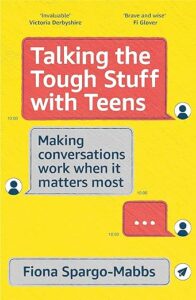
There are practical blueprints for tackling tricky issues and keeping communication channels open through even the toughest challenges (drugs, mental ill-health, self-harm) as well as more minor conversational irritants (untidy bedrooms, homework, bedtimes). Despite the sometimes difficult topics, Fiona Spargo-Mabbs avoids fear-mongering and succeeds in being warm and inspiring and totally accepting of imperfect parents and our imperfect teens, modelling with thought, reflection and humour a relationship-centred approach to parenting that will help you be the parent your teen really needs.
(I have to declare an interest here as I am one of the experts Fiona interviewed in writing this book, so you will also find a few more words of wisdom in here from me!).
Got an issue you want to raise?
Using books, TV programmes and the world around you as a launchpad is a great way to segue into a tricky conversation. But sometimes, you do need to be brave and direct. If there is a specific conversation you need to start, take a look at these posts for advice:
- How to talk to children about periods
- Talking to children about money and the cost of living
- Talking to children about tragic events
- Talking to teens about pornography
- Talking to children about drugs
- Talking to children about sex, bodies & relationships
- Talking to a teenager about healthy eating (without giving them a complex)
Did I miss a great resource that you’d like to recommend? Or do you have a fabulous tactic for starting great conversations that always works with your family? Leave a comment below and let us all know!
*This post contains affiliate links which means that if you click through from this post to Amazon and buy one of the books mentioned, I will receive a small fee (there is no charge to you). This enables us continue to provide free advice and information for parents. For more info, see my Disclosure Notice.

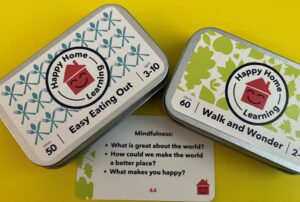
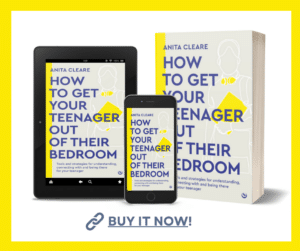


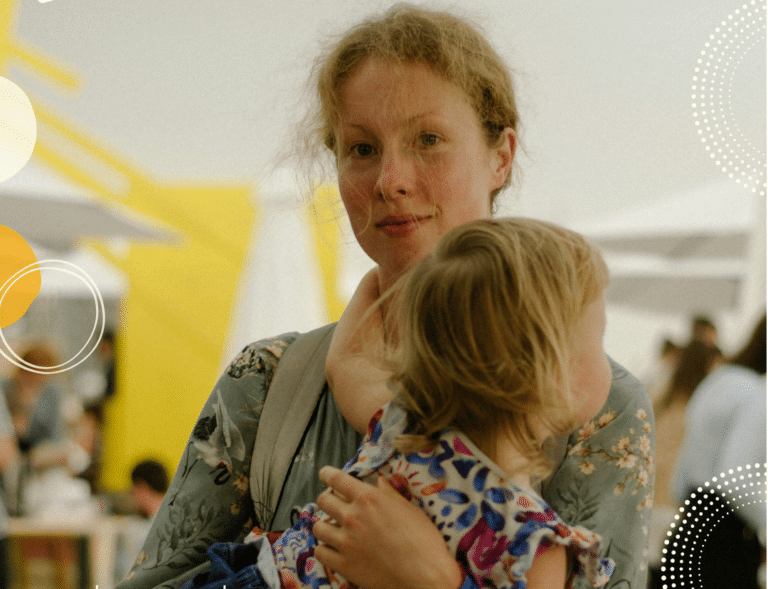
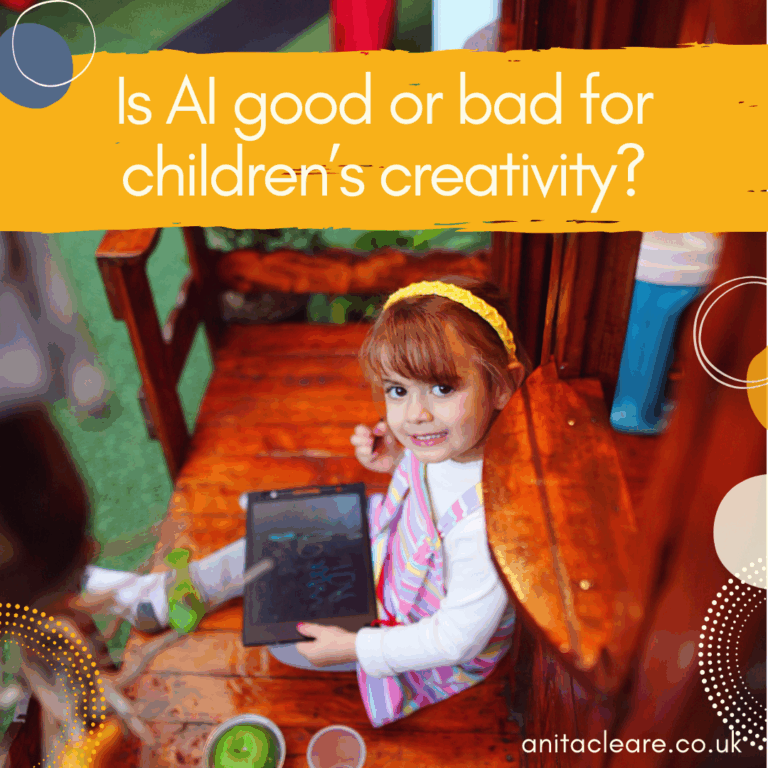

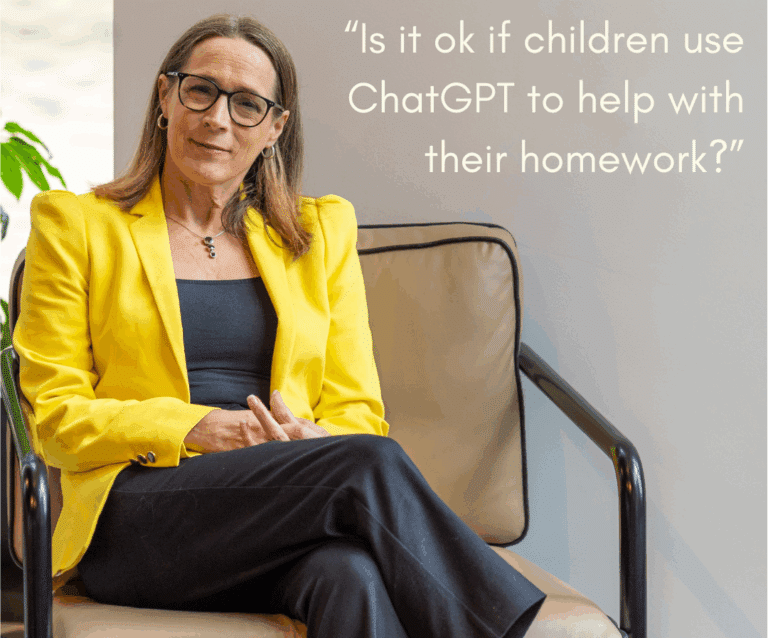
Leave a Reply